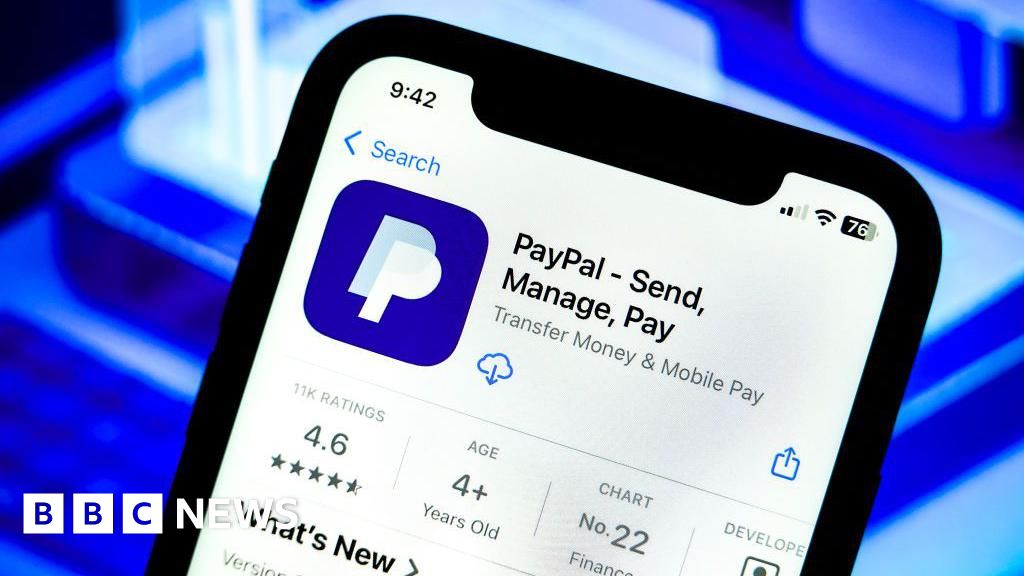European banks have seen widespread unauthorized direct debits from PayPal accounts, the German Savings Banks Association (DSGV) says.
The German newspaper Sueddeutsche Zeitung (SZ) reports that payments worth approximately 10 billion euros (£8.6 billion) had to be blocked after PayPal's fraud-checking system failed.
Payments were paused on Monday when lenders reported millions of suspicious direct debits from the payment firm.
The DSGV confirmed there had been incidents involving unauthorized direct debits initiated by PayPal against various credit institutions.
The BBC has approached PayPal for comment.
PayPal told Reuters that certain transactions from our banking partners and potentially their customers had been affected by a temporary service interruption.
PayPal's spokesperson said they quickly identified the cause and are working closely with their banking partners to ensure all accounts are updated. The DSGV also stated that PayPal expressed that they had resolved the problem, and transactions to and from PayPal have returned to normal.
These incidents significantly affected payment transactions across Europe, particularly in Germany. The supervisory authorities have been informed about the incidents at PayPal.
PayPal aims to prevent scams and fraudulent direct debits from reaching banks by using a security system. One common method of fraud involves criminals tricking individuals into providing their account details by impersonating a bank or financial institution over the phone.
According to SZ, PayPal's filtering system failed on Monday, allowing unchecked direct debits to be sent to banks alongside legitimate transactions.
In the wake of this news, shares in PayPal fell by 1.9% on Wednesday.




















